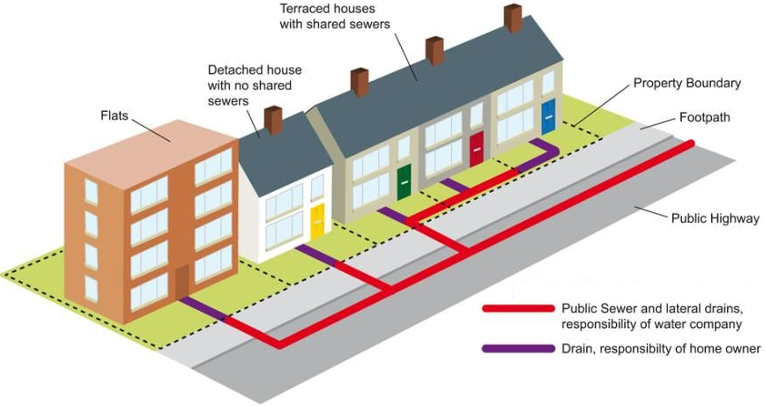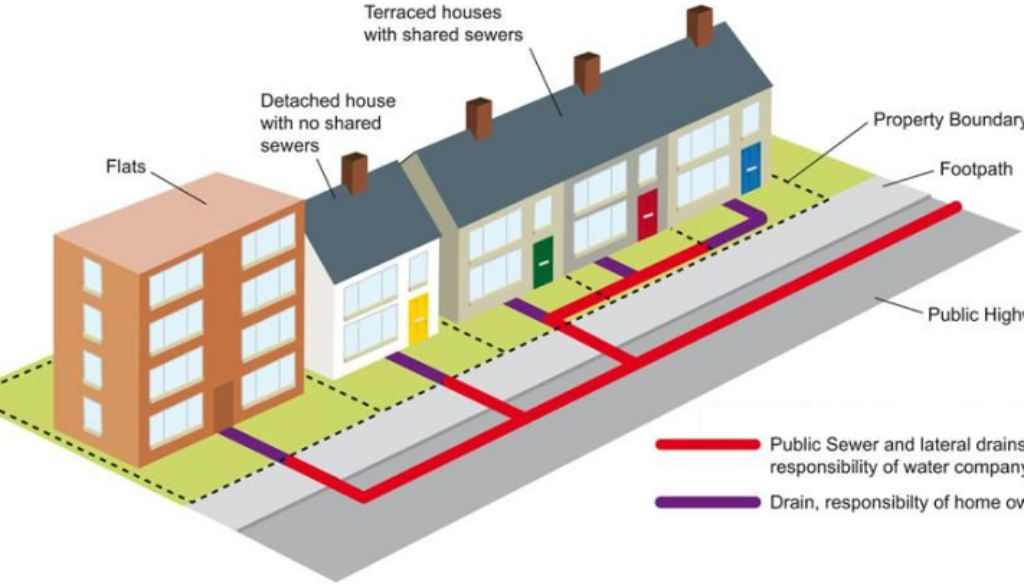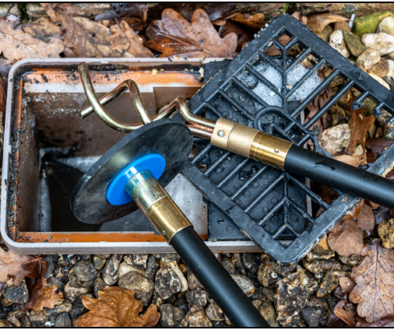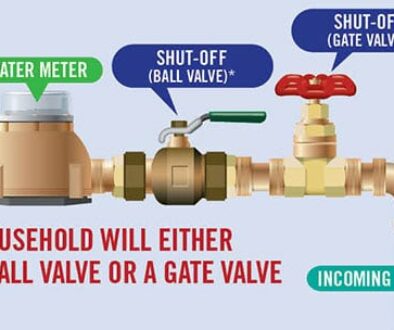Who Pays For Shared Drain Repairs
When it comes to shared drain repairs, determining who pays can be a complex issue. Typically, responsibility for these repairs is shared among multiple parties, such as neighboring property owners or the local municipality. Factors like property ownership and local laws can influence the division of costs. Consulting your local plumbing authority or seeking legal advice can help clarify the specific responsibilities in your area. Remember, it’s important to address shared drain repairs promptly to avoid further complications or disputes.

Who Pays for Shared Drain Repairs: Exploring the Responsibilities
Shared drain repairs can often be a source of confusion and disagreements among neighbors. When a drain serves multiple properties, it raises the question of who should bear the cost of repairs. In this article, we delve into the topic of who pays for shared drain repairs, exploring the responsibilities and legal implications involved. Understanding these factors can help resolve disputes and ensure a fair distribution of costs. So, let’s dive in and shed light on this often contentious issue.
Paying for Shared Drain Repairs: Key Considerations
When it comes to shared drain repairs, several factors come into play. It’s essential to be aware of these considerations to determine who is responsible for footing the bill. Here are some key points to keep in mind:
1. Property Deeds and Agreements
The first step in determining responsibility for shared drain repairs is examining property deeds and any existing agreements. Property deeds may outline the obligations of each homeowner when it comes to shared drains. Additionally, there could be easements or agreements in place that specify the responsibilities. It’s crucial to review these documents to establish who should bear the cost of repairs.
2. Shared Drain Maintenance Agreements
In some cases, homeowners within a shared drain system may have a formal maintenance agreement in place. Such agreements typically outline how costs will be shared and provide a framework for resolving disputes. If there’s a maintenance agreement, it serves as a guiding document to determine who pays for shared drain repairs.
3. Local Laws and Regulations
Local laws and regulations can have a significant impact on who pays for shared drain repairs. These laws may vary depending on the jurisdiction. Some areas may have clear guidelines dictating the responsibilities of homeowners, while others may leave it open to interpretation. It’s crucial to consult the relevant local laws and regulations to understand the legal framework in your specific area.
4. Fairness and Equity
When disputes arise regarding shared drain repairs, it’s essential to consider fairness and equity. Fairness entails distributing the financial burden reasonably among homeowners based on factors such as property size or usage. Equity, on the other hand, focuses on ensuring an appropriate and proportionate division of costs. These principles should guide discussions and negotiations to find a resolution that is fair to all parties involved.
5. Insurance Coverage
Homeowners’ insurance policies may also come into play when it comes to shared drain repairs. It’s important to review your policy and understand what it covers. Certain policies may provide coverage for shared drains, while others may exclude them. Consulting with your insurance provider can help determine if insurance can contribute to the repair costs.
6. Sharing the Cost Equitably
Once the responsibilities are established, sharing the cost equitably becomes crucial. It’s important to gather quotes from reputable contractors and obtain multiple opinions if necessary. Splitting the cost equally among homeowners may not always be fair, especially if one property benefits more from the repairs than others. Finding a fair and reasonable way to distribute the financial burden is key to maintaining harmonious relationships within the community.
7. Seeking Legal Advice
If disputes over shared drain repairs persist and cannot be resolved amicably, seeking legal advice may be necessary. A lawyer with expertise in property law can provide guidance and help navigate the legal aspects of shared drain repairs. They can analyze the relevant documents, laws, and agreements to offer a clear understanding of the legal responsibilities and potential courses of action.
Rights and Responsibilities: Clarifying the Duties
While we have explored the key considerations in determining who pays for shared drain repairs, it’s vital to understand the rights and responsibilities that accompany these decisions. Here are some important points to clarify:
1. Clear Communication
Effective communication among homeowners is essential when it comes to shared drain repairs. Openly discussing and agreeing upon responsibilities can help prevent misunderstandings and conflicts. Regular meetings or a shared agreement can ensure everyone is aware of their duties and obligations.
2. Timely Reporting of Issues
Homeowners should promptly report any issues with the shared drain to the responsible parties. Timely reporting allows for swift action and prevents further damage. Ignoring or delaying reporting can exacerbate the problem and potentially lead to more significant repair costs.
3. Regular Maintenance
To minimize the need for repairs, regular maintenance of shared drains is essential. Establishing a maintenance schedule and adhering to it can help identify potential issues before they escalate. Taking proactive measures can not only reduce repair costs but also contribute to the longevity and efficiency of the drain system.
4. Mediation and Dispute Resolution
When conflicts arise amongst homeowners regarding shared drain repairs, mediation and dispute resolution methods can provide a constructive way forward. Engaging the services of a neutral third party can help facilitate discussions and find mutually agreeable solutions. This approach can prevent conflicts from escalating and preserve the overall harmony within the community.
5. Expert Assessment
When determining who pays for shared drain repairs, it may be necessary to seek the expertise of drainage professionals. An expert assessment can help determine the cause of the issue and provide an unbiased opinion on the responsibilities. Their assessment can play a crucial role in guiding the decision-making process and resolving disputes.
6. Updating Agreements
Over time, agreements, property deeds, or maintenance contracts may need to be updated to reflect changing circumstances. If modifications are necessary, it’s important to involve all homeowners and seek legal assistance to ensure the changes are legally binding and fair to all parties.
7. Cooperation and Understanding
Ultimately, cooperation and understanding are vital for resolving issues related to shared drain repairs. Recognizing that everyone benefits from a properly functioning drain system and working together towards solutions can help maintain positive relationships within the community. Open dialogues, empathy, and compromise are key in navigating the complexities of shared drain repairs.
Key Takeaways: Who Pays for Shared Drain Repairs
- 1. Shared drain repairs are typically the responsibility of all homeowners connected to the drainage system.
- 2. Homeowners may need to consult a legal agreement or deed for specific responsibilities regarding drain repairs.
- 3. In some cases, homeowners’ associations or local authorities may cover the costs of shared drain repairs.
- 4. Homeowners should communicate and work together to agree on the fair distribution of repair costs.
- 5. It is important to conduct regular maintenance to prevent shared drain issues and potential costly repairs.
Frequently Asked Questions
When it comes to shared drain repairs, there are always questions about who bears the financial responsibility. Here are some common queries and their answers:
Who is responsible for paying for shared drain repairs?
Shared drain repairs typically fall under the responsibility of multiple parties who benefit from the use of the drains. This can include neighboring properties, homeowners associations, or local authorities, depending on the specific situation. It’s important to consult local laws and agreements to determine who is financially responsible for the repairs.
In some cases, the responsibility may be divided equally among those who share the drain system. Alternatively, it may be based on a proportional share, taking into account factors such as property size or water usage. Proper documentation of agreements or legal provisions will clarify the financial obligations.
Can the local authorities help pay for shared drain repairs?
In certain cases, local authorities may provide financial assistance for shared drain repairs. This can vary depending on the jurisdiction and the nature of the repairs. It’s advisable to reach out to the local authority responsible for drainage or sewer systems to inquire about available programs or support.
However, it’s important to note that funding from local authorities may be limited and subject to certain eligibility criteria. It’s always wise to explore alternative options and consider sharing the costs among the parties benefiting from the shared drain system.
What if the shared drain repairs are necessary due to one property causing the issue?
If the need for shared drain repairs arises due to the actions or negligence of a specific property owner, they may be held financially responsible for the repairs. In such cases, it’s essential to gather evidence of the cause of the problem and consult local legal regulations and agreements to determine the appropriate course of action.
If possible, it’s advisable to resolve the matter amicably with the responsible party through open communication or mediation. However, if an agreement cannot be reached, legal recourse may be necessary to ensure fair allocation of the repair costs.
What if one party refuses to contribute to shared drain repairs?
In situations where one party refuses to contribute to shared drain repairs, it can pose challenges. The resolution of such disputes often depends on the governing laws and regulations, as well as any agreements or contracts in place.
If communication and negotiation fail to reach a resolution, seeking legal advice is recommended. A lawyer specializing in property or real estate law can provide guidance on the specific legal avenues available to resolve the issue, ensuring that the financial responsibility is fairly distributed among all parties involved.
Are there insurance options to cover shared drain repairs?
Insurance coverage for shared drain repairs can vary depending on the policies and terms of individual insurance providers. It’s essential to review homeowners’ insurance policies and consult with insurance agents to understand the extent of coverage for shared drain repairs.
Additionally, it may be worthwhile to consider specialized insurance policies that offer protection specifically for shared drains or common areas. These policies can provide an extra layer of financial security, ensuring that repair costs are covered in the event of damage to the shared drain system.




